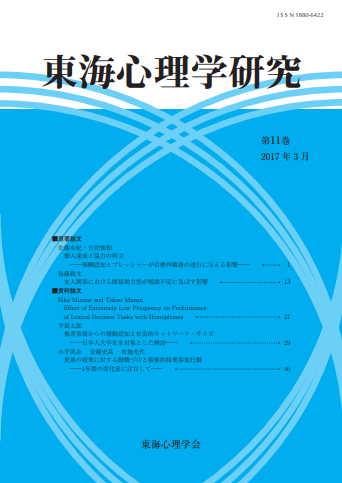11 巻
選択された号の論文の5件中1~5を表示しています
- |<
- <
- 1
- >
- >|
原著論文
-
原稿種別: 原著
2017 年 11 巻 p. 1-12
発行日: 2017年
公開日: 2023/05/10
PDF形式でダウンロード (624K) -
原稿種別: 原著
2017 年 11 巻 p. 13-20
発行日: 2017年
公開日: 2023/05/10
PDF形式でダウンロード (589K)
資料論文
-
2017 年 11 巻 p. 21-28
発行日: 2017年
公開日: 2023/05/10
PDF形式でダウンロード (250K) -
原稿種別: 資料
2017 年 11 巻 p. 29-39
発行日: 2017年
公開日: 2023/05/10
PDF形式でダウンロード (501K) -
原稿種別: 資料
2017 年 11 巻 p. 40-48
発行日: 2017年
公開日: 2023/05/10
PDF形式でダウンロード (506K)
- |<
- <
- 1
- >
- >|
